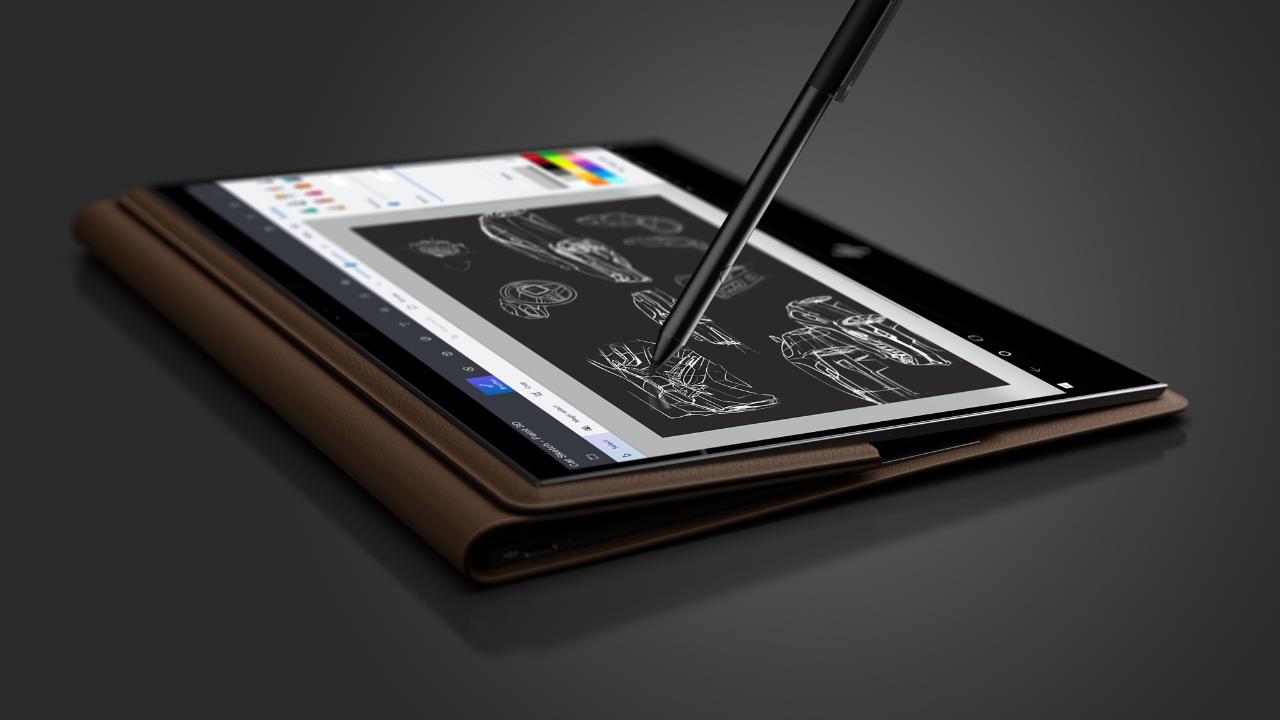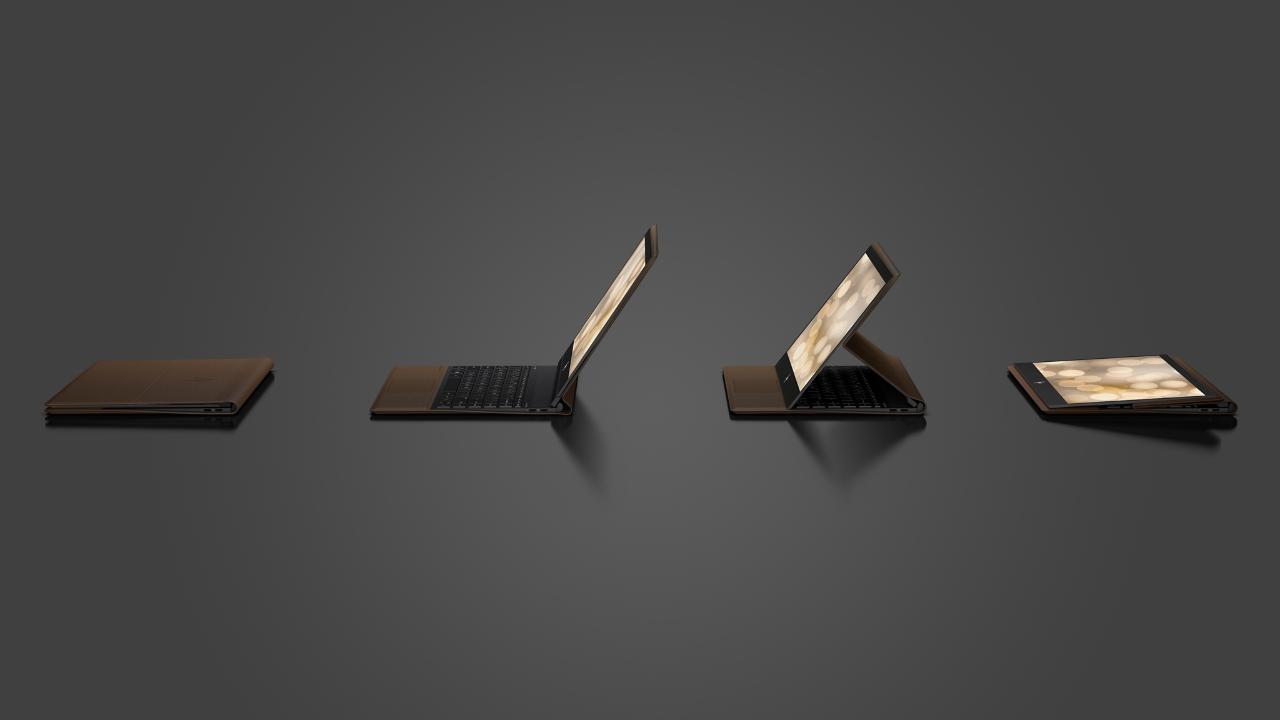As technology evolution and maturation continue to move forward, many PC and other device companies emphasize the experience of using their products as key to their design philosophy. The goal, they say, isn’t just to deliver on the key technical requirements and other specs necessary to provide good performance, but to make the overall encounter with their devices engaging and inspiring.
Few, if any, however, have taken the experience concept to the level that HP Inc. has done with their new Spectre Folio convertible PC design. How about a PC that you actually want to smell? Thanks to its very attractive leather-based design, the company has managed to create an elegant, premium feeling and, oh yeah, pleasant-smelling notebook computer that also incorporates an intriguing new take on convertible designs.
Rather than simply wrapping a notebook in leather, HP has actually built the Spectre Folio into the leather casing in a way that makes it an integral part of the device. The end result on the outside is a device that has the smooth, wonderfully tactile sensation that leather provides on quality briefcases, handbags, portfolios, and other non-tech products.
Inside, however, is a fan-less, 0.6” thin PC design—driven in part by the non-porous nature of leather—that still manages to incorporate Intel’s new 8th generation Amber Lake 5-watt Y-Series CPU designs (both i5 and i7 versions are available), 802.11ac WiFi, up to 18 hours of battery life, a 13.3” 400-nit display, and an option for a 4K screen. It’s a tremendous mashup of both old-world craftmanship and cutting-edge technology. At a starting price of $1,299, it’s not a cheap offering, but it’s in the range of what you’d expect to pay for a premium device.
"Rather than simply wrapping a notebook in leather, HP has actually built the Spectre Folio into the leather casing in a way that makes it an integral part of the device."
Another interesting aspect of the convertible design on the Spectre Folio is the ability to pivot the bottom of the screen forward into a tent mode that’s much easier to do than on typical, hinge-based designs (and doesn’t require the screen-switching hassle, either). So, if you want to watch a movie on a plane, or present slides to someone nearby, you can easily do so, and still leverage the touchpad, which is actually a nice detail of the design. Like many convertibles, the Spectre Folio also ships standard with a cordless pen with 4,096 points of pressure. One additional convenience, however, is that it fits neatly into the pen loop built into the side of the leather casing, making it less likely (at least theoretically!) to be lost.
In addition to its luxurious design, the Spectre Folio offers another intriguing connectivity option: an Intel-built LTE modem offering up to 1 Gigabit download speeds. Of course, with the Always Connected PC initiative, Qualcomm has been banging the drum of cellular connected PCs for a while now, and PC companies have offered integrated modems for years. Despite both these efforts, attach rates for LTE-equipped PCs have remained very low, due in part to the additional cost of a monthly data plan, as well as the ease of using integrated hotspot capability in today’s smartphones.
While none of these issues are completely going away with the Spectre Folio—though HP and Intel announced a special deal with Sprint that offers free cellular service for 6 months when you purchase one—another issue is starting to become a bigger concern: security. With the rising awareness of the potential vulnerabilities in public WiFi networks, many individuals and businesses are started to reconsider their connectivity choices and looking seriously at the private, single device connections offered by LTE cellular networks. I certainly don’t expect to see a massive shift occur anytime soon, but if there’s anything that’s going to make integrated LTE a more attractive option to some, it’s security that could start to shift the tide.
"If there’s anything that’s going to make integrated LTE [on notebooks] a more attractive option to some, it’s security that could start to shift the tide."
One nice detail of the Spectre Folio LTE implementation is that it includes both support for a physical SIM card and an eSIM. Many US carriers have been somewhat reluctant to support eSIMs in the past because of the potential ease of switching between carriers (they enable “digital” switching instead of having to get a new SIM). However, now that Apple added eSIM support in their latest line of iPhones, the tide of carrier support for them is already starting to change.
The new HP offering represents an intriguing new option for the premium PC market. While it’s easy to write off the leather-wrapped design as little more than a gimmick, the ability to bring an appealing physical experience to a quality digital experience is likely something that many demanding PC users are going to find attractive. I also wouldn’t be surprised to see it inspire a raft of competitors that offer similar physical advancements—especially given the overall device experience focus that so many PC companies now have. Given the more evolutionary advancements now occurring in PC technology, it just makes sense to bring new tactile improvements to our everyday computing.









No comments:
Post a Comment